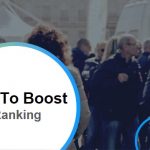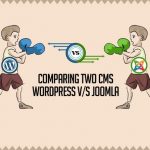On-Page SEO – A Complete Guide In 2021
Most people think that on-page SEO is nothing more than drizzling a few keywords here and there but it’s much more than that. On-page optimization is less straight forward than it used to be, it is still arguably the easy part of SEO. it is one of those things that you have full control over and doesn’t require much technical process.
If you are interested to have a complete overview of the basics of SEO then indeed you are at the right place. This guide by Tech Buzz Pro won’t tell you any secrets that will automatically rank your site first in google, but if you follow the practices outlined below, you will hopefully make it easy for search engines to crawl, index, and understand your content.
SEO is often about making small modifications to parts of your website. When these small modifications are combined with other optimizations, they could have a noticeable impact on your site’s user experience and performance in organic search results. Optimization topics we discuss below apply to sites of all sizes and types.
Site search for your site’s URL
If you see your site in the results, you are in the index. Google crawls a billion sites but it’s inevitable that some sites will be missed. When google misses a site it is probably because of one of the following reason:
- The site is not well connected to other sites on the web.
- You just launched a new website and Google hasn’t had time to crawl it yet.
- Google is blocked from crawling your site by your policy.
Do you need an SEO expert?
An SEO expert is trained to improve your site visibility on google. Make sure to research the potential advantages as well as disadvantages of hiring an SEO. Many SEO’s, an SEO Company in Jaipur and consultants provide useful services for website owners, which includes:
- Reviewing your site content or structure.
- Technical advice on website development, like hosting, redirects, error pages, and use of java scripts.
- Content development.
- Management of online business development campaigns.
- Keyword research.
- Seo training.
- Expertise in specific markets and geographies.
Tell Google which pages shouldn’t be crawled
You may not want certain pages of your site to be crawled because they might not be useful for the users if found in a google search result. Google search console has a friendly ‘robots.txt’ generator to help you create this file.
All on-page SEO elements fall into three main categories:
1. Content elements
In this section, we will focus on crafting high-quality page content that benefits your visitors and tells Google that your website provides value. Conduct keyword research by searching Google for terms and see what surfaces for competitors and other websites.
Here are few basic practices for writing high-quality page content:
- Incorporate short and long-tail keywords naturally.
- Write an interesting title- The first thing that is very important is the length of the title. If it’s too long Google will truncate it. The title should be less than 600 pixels long, it should be very engaging. Use emotional words, as people react to emotions. Break the stereotype by using brackets, numbers, and action words which improve the CTR.
- Add engaging and relevant visual content.
- Write for your specific buyer persona.
- Actively solve your audiem=nce’s problem.
- Optimize for conversions with CTAs to exciting offers.
- Images and other multimedia elements- images are important for presentation purposes. The biggest problem with the images is that Google doesn’t understand them and they add to the speed of a page.
- The page content is your opportunity to communicate your value to google and the site visitors. It is the heart of the on page SEO process.
2. Html elements
- HTML elements are the elements in your source code of website.
- Page titles- your website page titles are one of the most important SEO elements. Titles tell both, the visitors and search engines what they can find on the corresponding pages. Incorporate your keywords as naturally as possible.
- Use title tag modifiers- using modifiers like ‘best’ , ‘guide’ , ‘checklist’ can help you rank for long-tail versions of your target keyword.
- Headers- headers also known as body tags, refer to the HTML elements, h1,h2,h3, and so on. These tags help organize your content for readers and help search engines to distinguish what part of your content is most important. And relevant depending on your search intent.
- Meta descriptions- Meta descriptions are the short page descriptions that appear under the title in search results. Although it’s not an effective ranking factor in search engines, it can influence whether or not your page is clicked on. – meta descriptions can also be copied over to social media when your content is shared, so it can influence click-throughs from there, too.
- Readability – text readability is one of the most important factors. Most internet users dont read text on a page word by word. They just scan for the most important information. Take a look at the basic things that influence the readability of a page; page structure, typography, no walls of text, grammar, and stylistics.
- Structured markup- structured markup or structured data is the process of marking up your website source code to make it easier for Google to find and understand the elements in your content.
- Structured markup is the key behind those featured snippets, knowledge panels, and other content features you see what you see when you search on google.
- Note- structured data is considered as technical SEO, but I’m including it here because optimizing it creates a better on-page experience for the visitors.
3. Site architecture elements
- These elements are the elements that make up your website and site pages. How you structure your website can help Google and search engines to easily crawl the pages and page content.
- Page URLs- page URLs should be easy to digest for both readers and search engines. They are also when keeping your site hierarchy consistent as you create subpages, blog posts, and other types of internal pages. Some tips on how to write SEO-friendly URLs:
- Remove the extra, unnecessary words.
- Use only one or two keywords.
- Use HTTPS if possible, as google now uses that as a positive ranking factor.
- Internal linking-It is the process of hyperlinking to other helpful pages on your own website. Internal is important for on-page SEO because internal links send readers to other pages on your website, keeping them around longer. Thus telling google that your site is valuable and helpful. Also, the longer the visitors are on your website, the longer google has to crawl and index your website. This will potentially help in ranking your website higher on the search engine result pages.
- External linking- external link is like pointing to a page outside your website: i.e- on a different domain. For the website that is linked out, it is an external link and for the website that receives the link, it’s backlink. You can use external links to other websites and then email them and let them know about it. Webmasters will be pleased to know that you have linked to them and it is a great way to start conversion. You can gradually build on this relationship and eventually get backlinks to your website as many webmasters will be more likely to return to favor.
- Sitemaps- It is used when you have a large website with many pages. A sitemap is a simple file [ usually a .xml] with the URLs of all your pages.it helps the crawlers to find all the pages you want to be crawled.
- Mobile responsiveness matters- it is critical to choose website hosting services, site design, theme, and content layout that is readable and easily navigable on mobile devices. If you are not sure about your own site’s mobile readiness, use google mobile-friendly test tools.
- Site speed- whether being viewed on a mobile or a desktop, your site must load quickly. Google cares about user experience first and foremost. If your site loads slowly or haphazardly, it’s likely that your visitors aren’t going to stick around- and google knows that. Moreover, site speed can impact conversions and ROI.
- Choose a proper Web Hosting- hosting has a significant impact on page speed, so make sure you choose a reliable provider. You don’t have to worry about milliseconds but don’t expect an awesome performance from providers that provide hosting from 0.10 dollars per month. Things to be taken into consideration- speed, uptime, server location.
CONCLUSION:
Above we see a guide about on-page SEO. We see the factors we need to keep into consideration. All the factors discussed above are an important part of on-page SEO and following these steps will definitely improve the rank of your website and will also increase visitors to your website.

